Our Life Is a Movie: Good Morning, Vietnam (1987)
/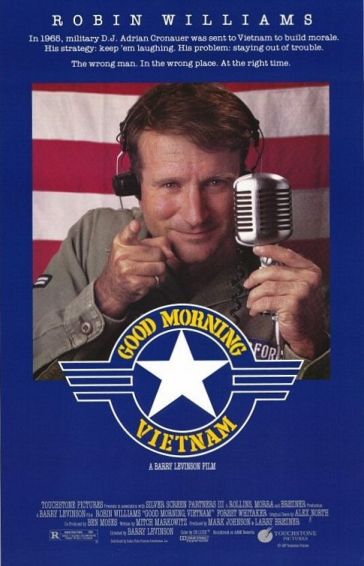
Oh, yes, two in a row. After Dead Poets Society (and a lack of new movies to talk about), I decided to look at the other Robin Williams movie from the late 80s that had a huge impact on me: Good Morning, Vietnam. I saw it around the same time as Dead Poets Society and it cemented Robin Williams as one of my personal heroes of my late childhood. It is also a strange movie to watch at 12 when the Vietnam War is only something abstract I had no relation to. But around the same time I must have watched Apocalypse Now on repeat, so something must have been set into place there for my interest in this war and the dark sides of U.S. history. But this movie is mainly a comedy and primarily because it’s Robin Williams’ show. And in many ways this movie resembles Dead Poets Society in its structure: Williams plays the offbeat character that overthrows conventions, he has to fight against authority and has to pay for it in the end, nevertheless teaching everyone willing to listen something about being different. One more reason for doing this double feature.
Upon his arrival in Saigon, Adrian Cronauer (Williams), a popular radio DJ, starts off his first show with making fun of the music that has been played there before, making jokes about the war and the military and playing current rock’n’roll music. His willingness to cross boundaries is symbolized the volume level meter moving into the red territory all of a sudden. During his first broadcast, the movie gives us a glimpse of the country and the war by showing images both of soldiers in the jungle and the city, but also of normal Vietnamese citizens living their life, also both in the city and the countryside. It thereby balances its presented image without commenting on it. You see the soldiers laughing and considering that most of Williams’ scenes are improvised it’s no surprise that they are funny.
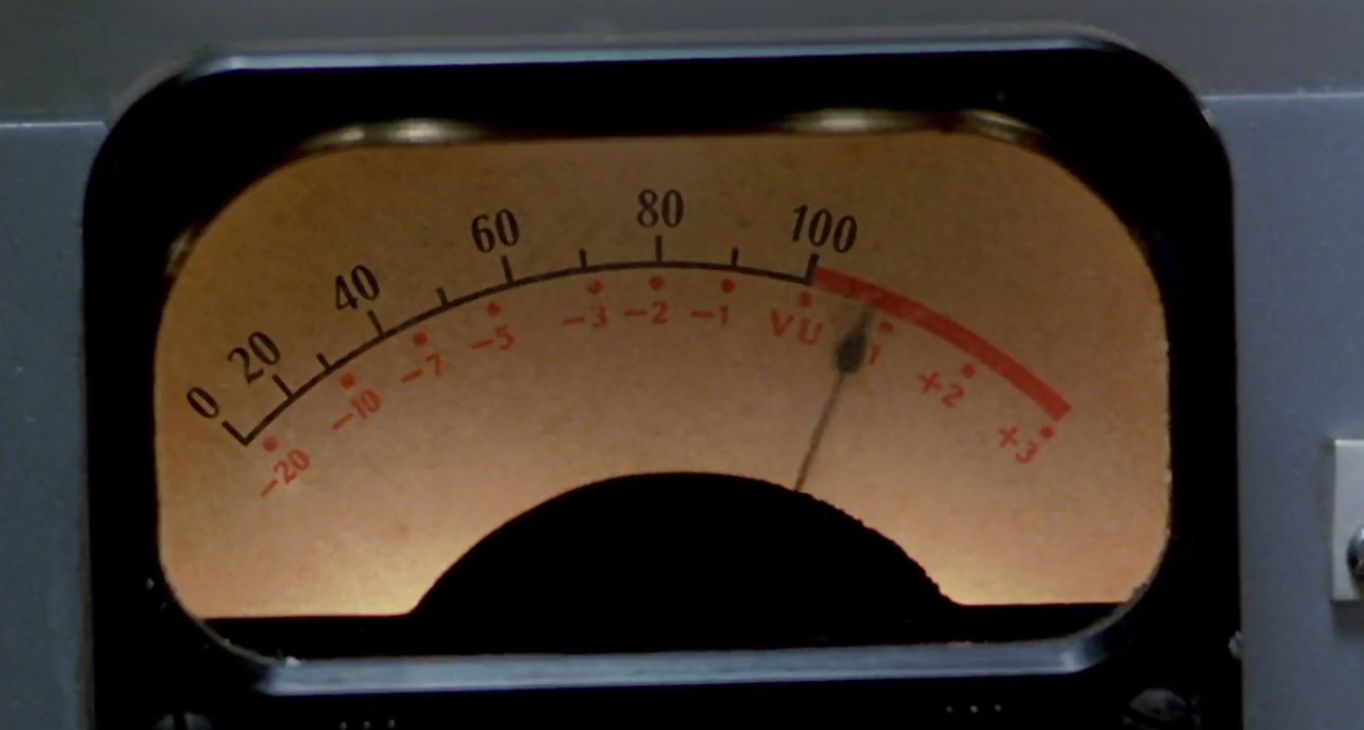
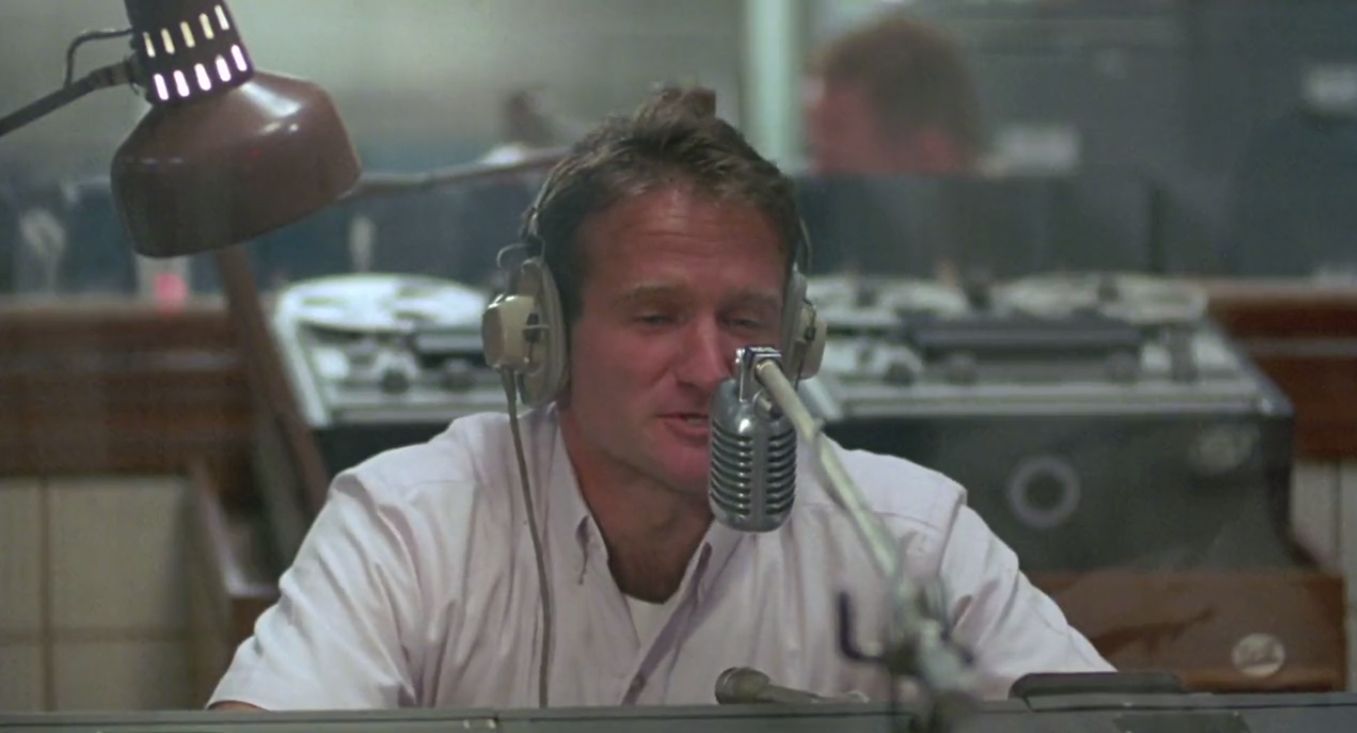
His colleagues at the radio station love him instantly, but of course the authorities aren’t so happy. Lt. Hauk (Bruno Kirby, almost unrecognizable if you know him from later roles, even just two years later from When Harry Met Sally), whom no one respects as an authority anyway, but he goes on about Cronauer’s jokes and their inappropriateness. The problem of course is that he has no sense of humor at all. He represents the pathetic side of authority, authority only in rank, without any integrity or competence. He can only be laughed at but because he sits higher on the hierarchy, he has some power. After the first broadcast, he has a little tirade, explaining his own disappointment about the disrespect he gets although he is an authority now.
You know, I hate the fact that you people never salute me. I am a lieutenant and I would like salutes occasionally, that’s what being a higher rank is all about.
How to better summarize the delusions about authority?

Cronauer then falls for Trinh (Chintara Sukapatana), which leads to her brother Tuan (Tung Thanh Tran) uttering his hate for the colonizers of Vietnam: You’re phony, just like American and French before you, here to get something, leaving when you not get it. He then shows Cronauer the life in Saigon, which both leads to inter-cultural understanding but also brings out the military’s racism in a bar brawl. This leads to trouble for Cronauer in the form of Sgt. Major Dickerson (J.T. Walsh), the scary side of authority. He also insists on being called the right rank by Cronauer, threatening and intimidating him with all the power he has.
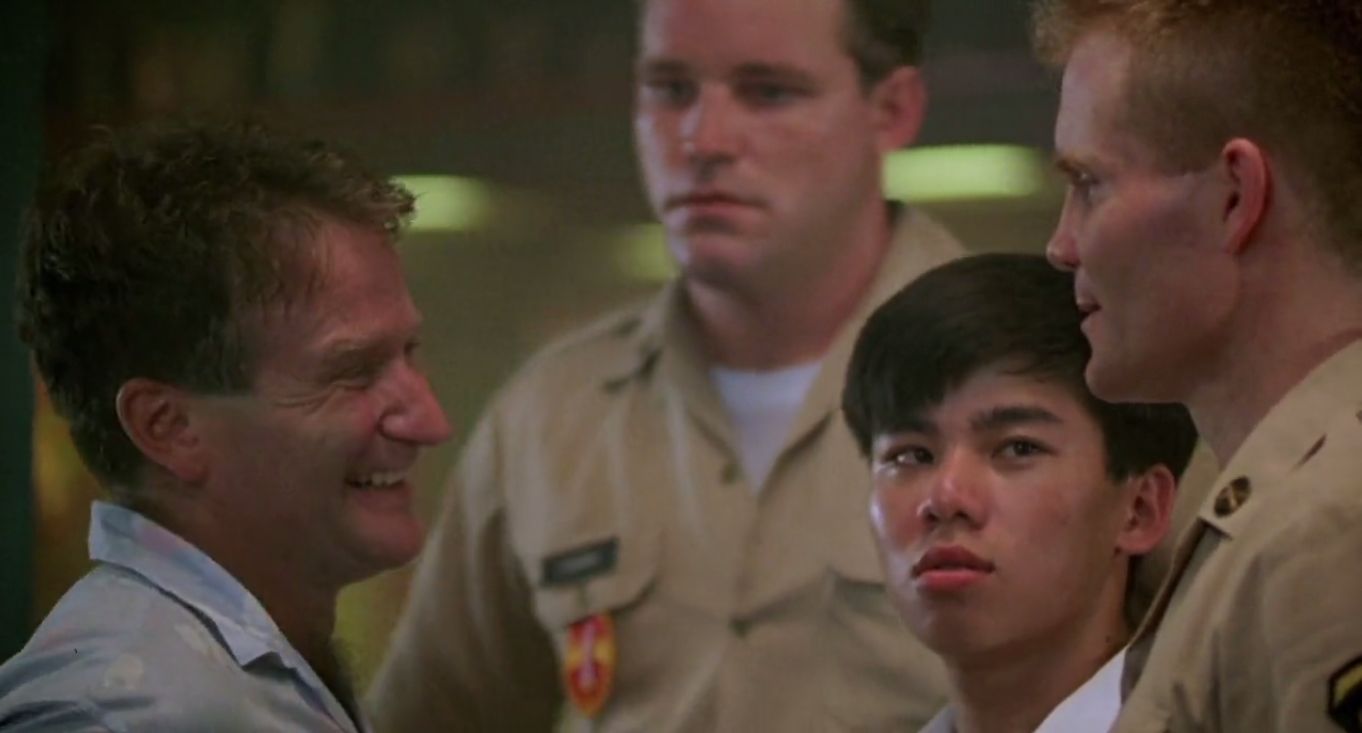
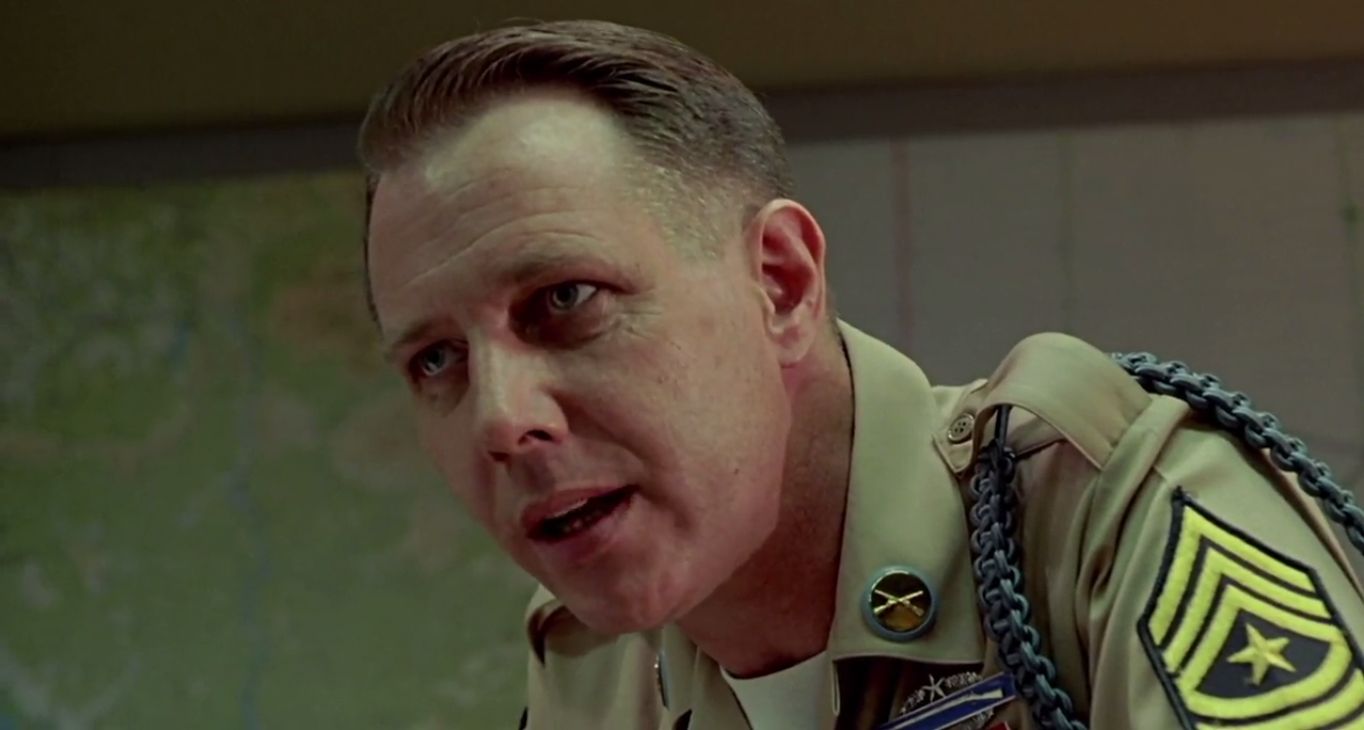
He wants to read the real news about the Vietnam conflict slowly escalating, but he is not allowed to because the truth doesn’t count if it threatens the system. He cuts a boring Nixon interview into a sketch about Nixon’s sex life. Dickerson and Hauk are infuriated, but their superior, Brigadier General Taylor (Noble Willingham), supports Cronauer because he has a sense of humor. He turns them into powerless puppets, which is the worst that can happen to people in authority.
When the war suddenly hits Saigon and Cronauer barely escapes a bombing. He is shaken by the incident and wants to read the news report on his show, but is of course kept from doing it. Of course he reports the bombing anyway because he wants people to know what’s going on, but is taken off the air for it. While he’s off, Tuan takes him to their village and we see more of the Vietnamese life that is so absent in most Vietnam movies. Eventually, he gets his job back of course and plays good music while the war is escalating, as the movie illustrates with more montages or protests and troop movements.
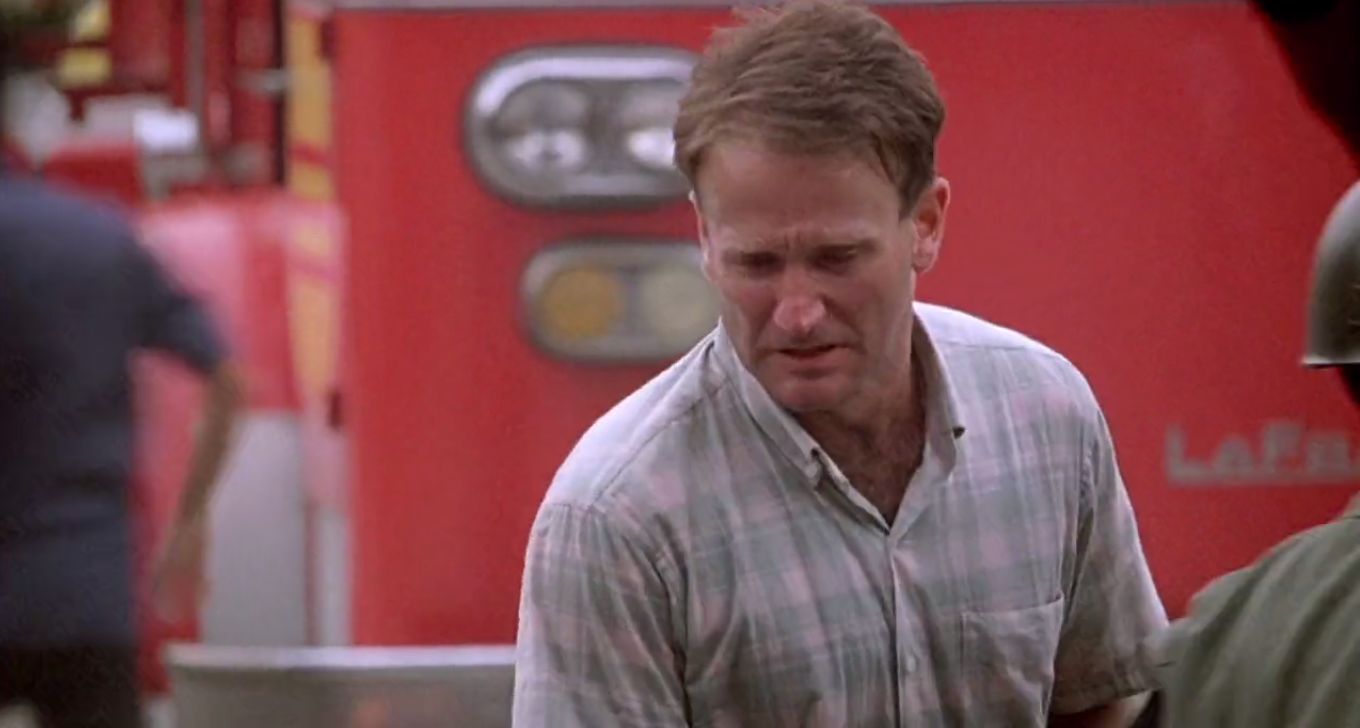
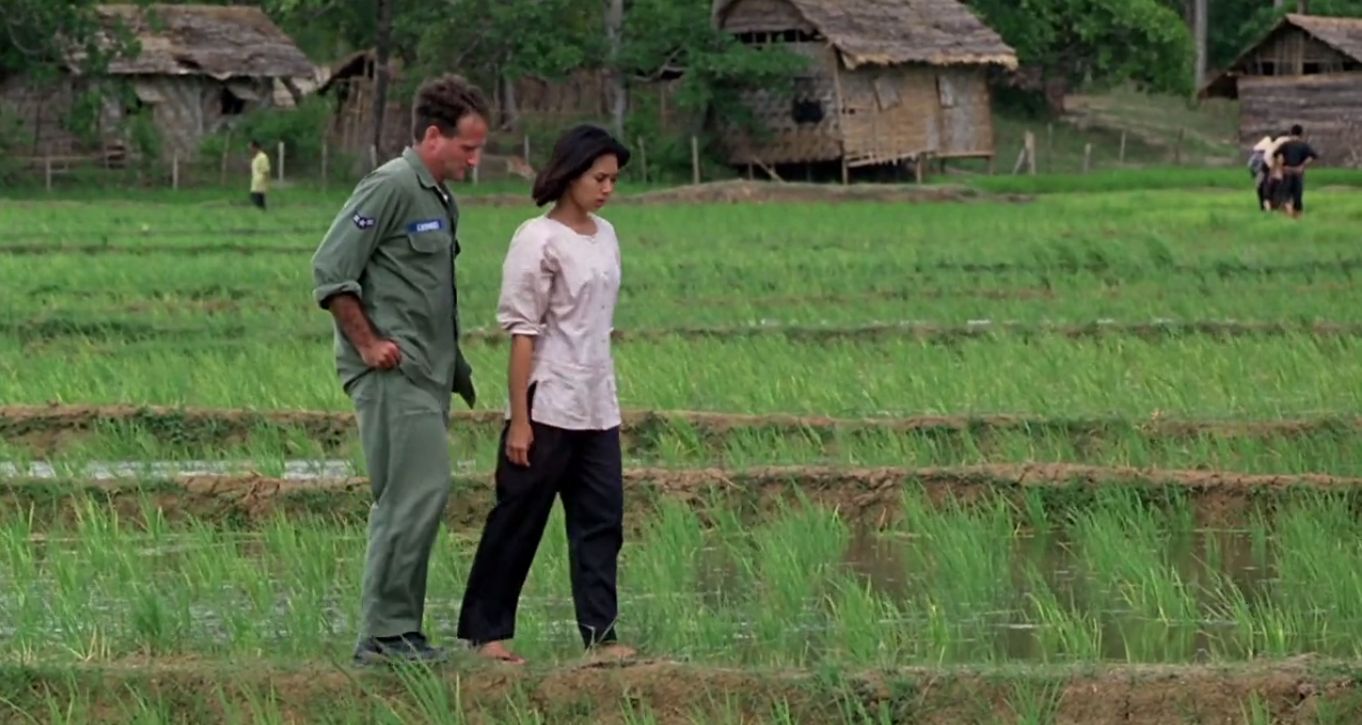
Finally, Cronauer is fired because of his connection to Tuan. I always felt this was some sort of cop-out because the movie deliberately tries to show both sides of the story, but by making Tuan the angry martyr in the end (as true as this might be for many people) seems slightly off for me, as if the movie was afraid to really go all the way in giving a positive portrayal of the Vietnamese, especially because it also doesn’t attempt to romanticize them too much. But this is a minor flaw in a great movie, that is both funny and heart-warming and sad. It didn’t completely fry my heart like re-watching Dead Poets Society did, but it still leaves me with a warm, fuzzy feeling. It doesn’t constitute as big a part of my personality as the other one, but again it must have had some effects on looking critical at authority, censorship and war. And of course in realizing again what a loss Robin Williams’ death is. But with two movies like this he easily lives on forever as a great actor and comedian.

